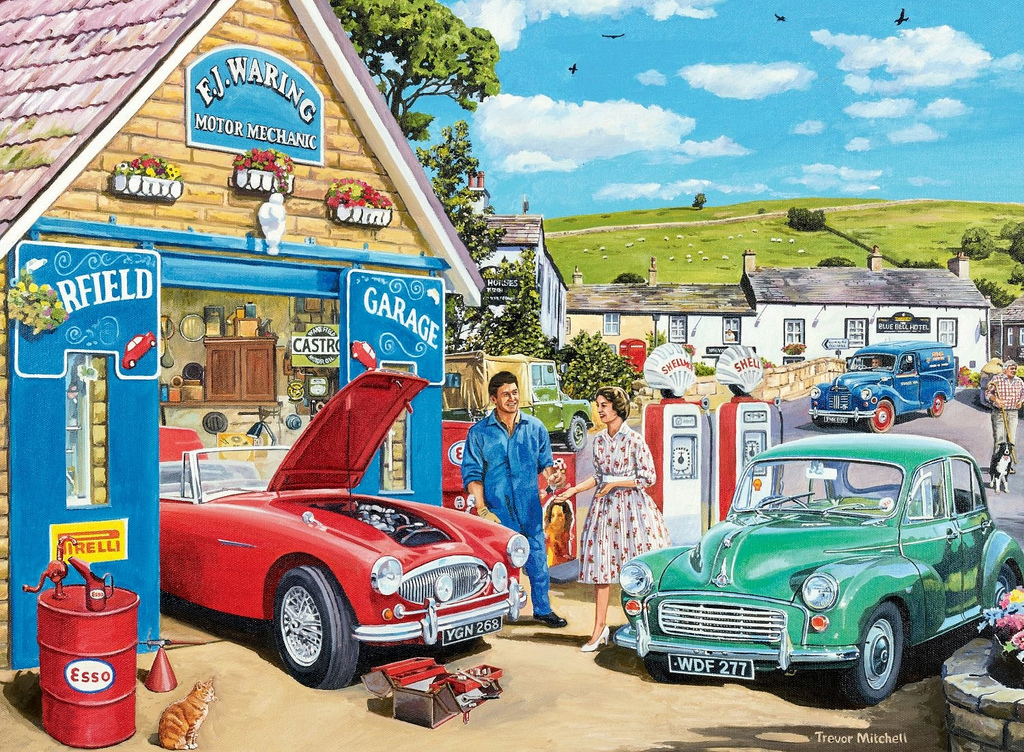 The motor trade is currently doing well in the UK, and after a few recession-hit years the future looks bright for those in the motor business. As the industry grows there’s also a need for more employees, and getting the right qualifications and skill sets is becoming ever more essential. It’s not just about picking up some work experience in your local garage anymore; what do you need to know about getting into the motor trade?
The motor trade is currently doing well in the UK, and after a few recession-hit years the future looks bright for those in the motor business. As the industry grows there’s also a need for more employees, and getting the right qualifications and skill sets is becoming ever more essential. It’s not just about picking up some work experience in your local garage anymore; what do you need to know about getting into the motor trade?
The Roles Available
There is an enormous call for skilled labour in the motor trade, and a lot of it goes beyond what you might first think. There are, of course, plenty of car dealers and salesman, but they very often have large marketing and finance departments behind them, as well as a lot of corporate support roles. The industry for motor trade insurance is blossoming as well, and it’s an exciting way of getting involved with some of the more technical aspects of the trade.
If you’d rather be hands-on then it doesn’t just have to be about the mechanics. There are plenty of traders who need accurate valuations and condition reports, as well as people like auctioneers. The car rental industry is also becoming bigger, and as fleets grow so does the need for people to maintain them.
Starting with Apprenticeships
As a part of the UK’s drive to strengthen the structure around vocational qualifications, a bulk of the available roles in the motor industry can now be taken on via apprenticeships. Apprenticeships in the motor trade tend to be mechanical roles for vehicle maintainers, but there are a number of office-based apprenticeships out there too.
If you manage to get on to an apprenticeship scheme you’ll most probably be working part-time and studying towards a qualification such as an NVQ. This allows you to earn a living wage while getting out there and boosting your skill set!
Higher Qualifications
Of course, it doesn’t stop at apprenticeships for the motor trade, and as you become more skilled in your work you’ll find that there are other qualifications you can begin to work towards. The National Occupational Standard sets the bar for most qualifications in the motor industry, and the pathway you choose will very much determine where you end up.
For example, if you’re interested specifically in motorcycles, then the NOS standard for motorcycle repair and maintenance is what you’ll want to aim for. There are also qualifications available for all kinds of light and heavy vehicles, as well as for vocations such as joinery or paintwork.
Experience and On-the-Job Training
In the motor industry few things count as much as on the job experience, so getting work where you can is essential. Don’t worry if your first job or two isn’t quite taking you where you want to be as many of the skills you will learn are very general and can be easily applied to all kinds of motor vehicles.
It’s also definitely a case of working your way up in the motor industry. Not everyone can start out in a Formula One garage, but many high quality mechanics do end up working in racing or motorsports. However, you won’t get there without knowing how to fix the gasket on a Corsa, so start small and work your way up!
Branching Out
There’s never a time to stop learning in the motor trade, and there a number of courses run by the NOS and other providers that can help you broaden your knowledge away from what you already know. The principles of repair and maintenance as well as sales all transfer across jobs, so don’t settle for what you already know.
There are also a good number of professionals in the UK who have branched out on their own to establish a garage, showroom or even a rental fleet of their own. This is definitely something you can work towards, but it’s crucial that you pick up both the technical abilities and the business knowledge before doing so!
Of course, there’s no one route you must take in order to get into the motor trade. There are roles for school leavers, apprentices, graduates and even career changers, so if it’s something you love then there’s definitely going to be a place to start. What really counts in the motor trade is passion, so if you love what you do then that’s enough reason to keep learning and become better and better.
Photo by Paul Townsend / CC BY-ND 2.0
